Thousands of dogs live on the streets of Prishtina. Recently, Mayor Perparim Rama announced the city’s latest initiative to control the dog population by incentivizing people to adopt stray dogs. However, the question remains: How will this plan unfold?
Last month, a two-year old child was bitten on the face by a stray dog in Mother Theresa Square. This is not an isolated instance, as multiple people are bit or chased every week in Prishtina. Street dogs are also the victims of attacks from pedestrians. Recently, a dog was found shot dead outside the National Library of Kosovo.
There are approximately 3,000 stray dogs living in the capital city. While many street dogs are friendly, they can be aggressive towards people, especially when they are in packs. The overpopulation of street dogs poses a threat to public safety.
Following the recent attacks, Prishtina Mayor Përparim Rama announced an ambitious new plan. The municipal government will pay households 50 euros per month for every stray dog they adopt, for up to five dogs.
The proposal passed the assembly, and the rounding up of street dogs has already begun. Mayor Rama said that the “removal of stray dogs will continue every day, until we remove them all.” The dogs will be placed in large shelters before they are available for adoption.
Mayor Rama’s controversial new plan is full of flaws that endanger both the dogs and the households who may adopt them. A robust, long-term CNVR campaign would better address the issue.
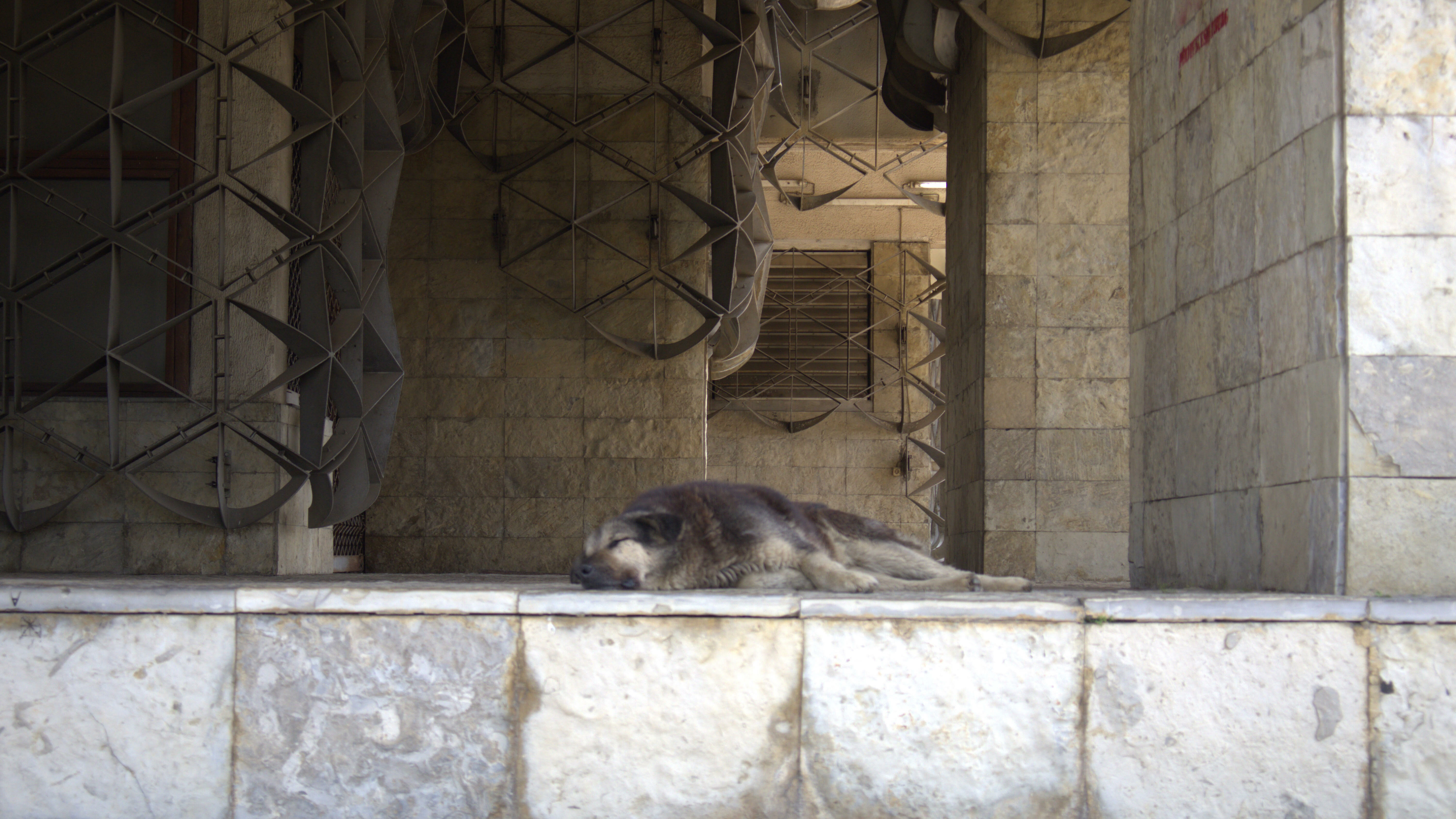
During the day, a stray dog sleeps on the steps of the National Library of Kosovo, Prishtina, July, 2023. Photo: Kylie Henry/PI
‘50 euros per dog per month’
Families in Kosovo receive 10 euros per month per child. Many people believe it is unfair that families will be compensated 50 euros per month for each dog, far more compensation than children receive.
The plan is also flawed because only 6 per cent of people in Prishtina are interested in adopting a street dog, according to a survey from the Animal Rights Foundation. Rama’s plan to pay people to adopt dogs is likely to fail because people do not want to adopt stray dogs, and the dogs may languish in overcrowded shelters for the rest of their lives.
For the few dogs who may be adopted, it is is important to consider that these strays are not house-trained or domesticated. They have grown up roaming the city streets, and will likely not adjust well to these changes.
Most people in the city of Prishtina live in apartments, which are not suitable for large dogs. Imprisoning these street dogs inside apartments is not appropriate for the dogs or their potential owners.
Additionally, based on the recent attack on a child, it may be unsafe to place dogs in a house or apartment with children.
The new plan is also unsafe for the stray dogs.
First, Rama’s plan includes keeping street dogs in large shelters until they are adopted. The Prishtina Dog Shelter, a medium-sized shelter in Gracainca, argues that keeping dogs in large shelters will be “a disaster” because diseases spread quickly, and dogs become protective over food and territory. Relegating stray dogs to overcrowded, diseased shelters is not a better solution.
For the dogs who are adopted, there is no guarantee that they will be kept in inhumane conditions.
The Animal Rights Foundation is highly concerned about the lack of oversight for the project. Elza Ramadani, the CEO, said that “the municipality should have some preliminary conditions for those who want to adopt a dog. They should have a fenced yard, not keep the dog in bad conditions, and be constantly monitored by the Food and Veterinary Agency and veterinary or municipal inspectors.”
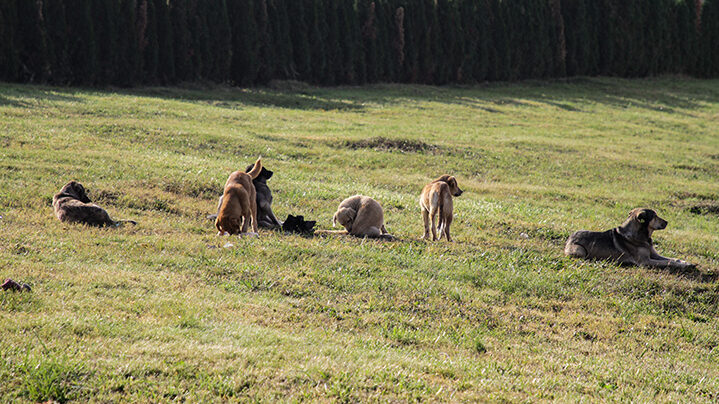
Stray dogs in the periphery of Prishtina. Photo: BIRN.
However, Lamir Thaci from the Food and Veterinary Agency told BIRN that the organization is facing an insufficient number of veterinary inspectors. It is unclear then who will ensure that adopted dogs are housed properly.
The Animal Rights Foundation found that abandoned owned dogs are the leading cause of the increase in dogs in Prishtina. While Rama has threatened that “there will be fines from 1,000-3,000 euros if an adopted dog is found on the street,” there is no current enforcement mechanism to ensure that these dogs will not be re-released.
The funding for this major project poses another issue. The government plans to allocate up to 3 million euros to this plan, nowhere near enough to sustain this 50 euro compensation plan for several years.
Though an ambitious idea, Rama’s plan to reduce stray dogs in Kosovo’s capital is unsustainable and unlikely to be safe or effective. The humans and dogs of Prishtina deserve better.
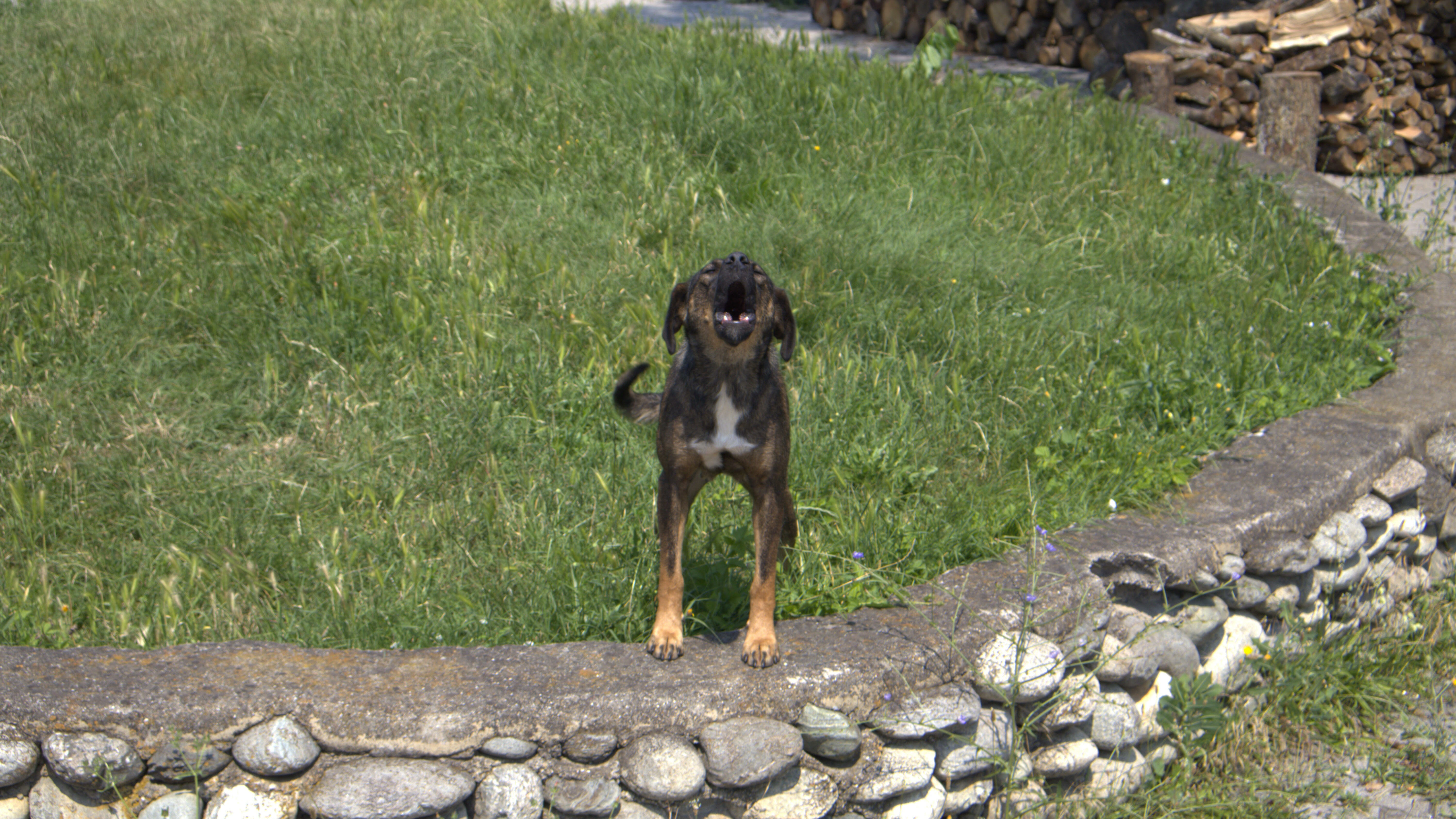
Stray dog barks at Prishtina Insight photographer, July, 2023. Photo: Kylie Henry/PI
Previous efforts to control the dog population
Until 2011, the Prishtina municipal government employed hunters to cull, or shoot, stray dogs.
After ending the culling campaigns, Pristina adopted CNVR [Capture, Neuter, Vaccinate, Release] as its official policy. The World Animal Protection organization considers CNVR to be the only method to effectively control a stray dog population.
Kosovo launched a 1.3 million euro CNVR project in 2018, and Prishtina funded its own 350,000 euro CNVR campaign in 2022. Both projects were rife with corruption and tragedy.
For example, veterinarians were paid 30 euros for each dog that they neutered, but they would often report a dog more than once in order to get paid multiple times.
Even more tragic, many of the veterinarians involved in the project were not properly trained, according to the Animal Rights Foundation. Veterinarians accustomed to performing sterilization procedures on larger animals lacked the skills and tools to sterilize dogs. Poorly performed surgeries led to unnecessary pain and deaths for the stray dogs.
Neither project produced a visible decrease in the dog population. Project funding was not allocated to monitoring the dog population, so there is no clear data on whether or not the program was a success.
The 2022 CNVR campaign in Prishtina may have even increased the number of dogs in the city. According to the Prishtina Dog Shelter, people brought in dogs from all over Kosovo to be sterilized. These dogs were then released in Prishtina, causing an increase in the number of dogs in the city.
There are some NGOs, such as the Prishtina Dog Shelter and the Kosovo Pet Rescue, working to shelter stary dogs. However, these small-to-medium size shelters are fully dependent on private donations and do not recieve funding from the government, which limits the amount of work they can afford to do.
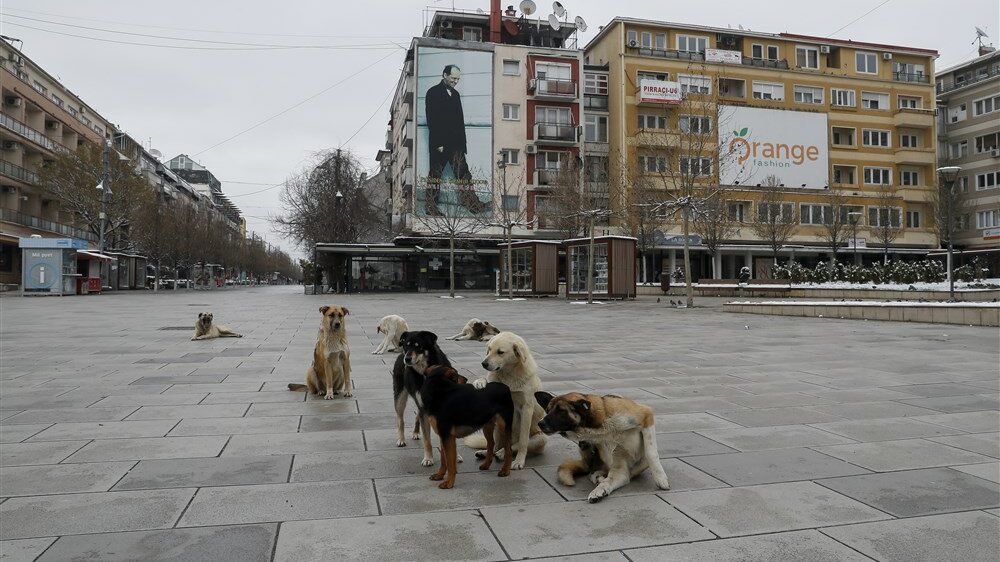
Stray dogs rest on the main square in Pristina, Kosovo, 25 March 2020. Photo: EPA-EFE/VALDRIN XHEMAJ
What next?
Mayor Rama’s new plan may lead to overcrowded shelters and untrained stray dogs inside homes and apartments. This is not an appropriate way to remove dogs from the streets of Prishtina.
Based on a survey by the Animal Rights Foundation, over 70 per cent of people in Prishtina would like to see the street dog population reduced in a humane way.
Kosovo needs more responsible, long-term CNVR campaigns. These need to be national, multi-year projects. One or two years of sterilizing dogs is not going to end the issue, but maintaining a spay/neuter rate of over 70 per cent of dogs for several years will help reduce the population in the long-term.
Veterinarians tasked with carrying out these campaigns must be properly trained and use the correct tools and materials.
In addition, all dogs–adopted or purchased from breeders–need to be registered and microchipped. Owners who release dogs on the street must be caught and heavily fined.
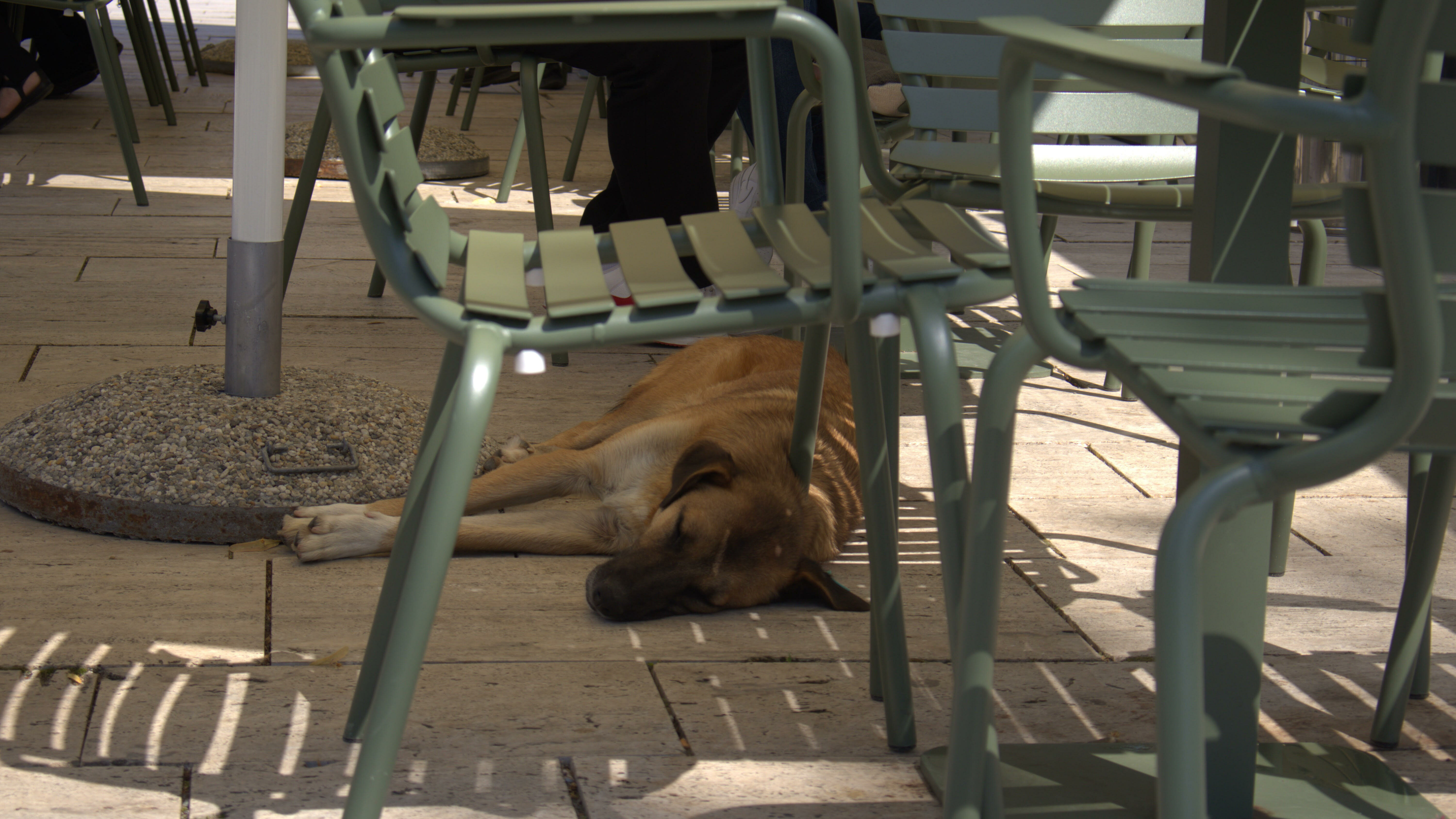
To escape the summer heat, a stray dog lounges under tables at Missini Sweets in Prishtina, July, 2023. Photo: Kylie/PI
The creation of temporary care shelters would also house some dogs recovering from operations, receiving treatments for disease, and provide a path to national or international adoption. With thousands of dogs on the streets though, it is unrealistic to assume that sheltering alone is a practical solution. No shelter could house thousands of dogs.
The overpopulation of stray dogs in Prishtina and throughout Kosovo makes everyone less safe, dogs and humans alike. However, this is not an unsolvable problem.
With the right interventions, a combination of the registration and sterilization of owned dogs, proper training for veterinarians, and a sustained national CNVR campaign, the stray dog population can be reduced and the city can be safer for all who live in it.
Kylie Henry is a U.S. Fulbrighter living in Prishtina, Kosovo. She is currently an intern at Prishtina Insight and an English teacher at the American Advising Center. She graduated from George Washington University with a Bachelor’s degree in International Affairs in May 2022.





